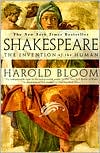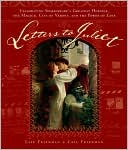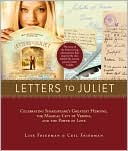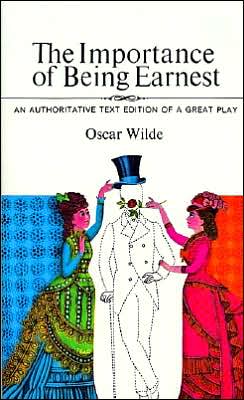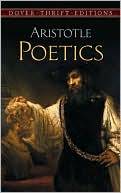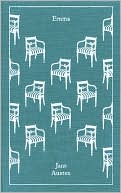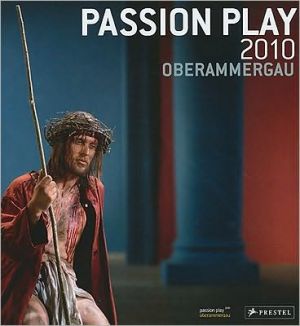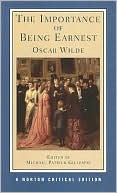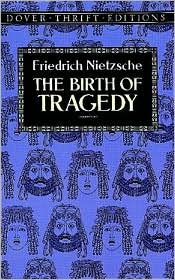Shakespeare: The Invention of the Human
"The indispensable critic on the indispensable writer." -Geoffrey O'Brien, New York Review of Books\ A landmark achievement as expansive, erudite, and passionate as its renowned author, Shakespeare: The Invention of the Human is the culmination of a lifetime of reading, writing about, and teaching Shakespeare. Preeminent literary critic-and ultimate authority on the western literary tradition-Harold Bloom leads us through a comprehensive reading of every one of the dramatist's plays,...
Search in google:
Remember the controversy attending the publication of The Western Canon? Well, hold on to your mortarboards -- critic, scholar, and Falstaffian gadfly Harold Bloom returns with his magnum opus, Shakespeare: The Invention of the Human. Whether deriding the tenets of the so-called "School of Resentment" or trumpeting the 39 plays of William Shakespeare as "the fixed center of the Western canon," Bloom is here at his audacious best, offering a passionate analysis of the ways Shakespeare not only represented human nature as we know it today but actually created it. Infusing literary criticism with an unusual narrative force, Bloom helps us to understand ourselves through literature, revealing "not only of how meaning gets started...but also of how new modes of consciousness come into being."The New York Times Book Review - James ShapiroHad Bloom, one of the most gifted of contemporary critics, stuck to the plays and characters that he deeply understands, this book would have been a third as long and far more compelling.
Chapter One \ THE COMEDY OF ERRORS\ The shortest and most unified of all Shakespeare's plays, The Comedy of Errors is regarded by many scholars as his very first, which I tend to doubt. It shows such skill, indeed mastery--in action, incipient character, and stagecraft--that it far outshines the three Henry VI plays and the rather lame comedy The Two Gentlemen of Verona. It is true that in comedy Shakespeare was free to be himself from the start, whereas the shadow of Marlowe darkens the early histories (Richard III included) and Titus Andronicus. Yet, even granted Shakespeare's comic genius, The Comedy of Errors does not read or play like apprentice work. It is a remarkably sophisticated elaboration of (and improvement upon) Plautus, the Roman comic dramatist whom most of our playgoers know through the musical adaptation A Funny Thing Happened on the Way to the Forum. Shakespeare himself was adapted splendidly by Rodgers and Hart, whose The Boys from Syracuse took The Comedy of Errors as their source, much as Cole Porter later was to utilize The Taming of the Shrew for his Kiss Me Kate.\ In The Comedy of Errors, Shakespeare compounds Plautus's The Two Menaechmuses with hints from the same dramatist's Amphitryon, and gives us the wonderful absurdity of two sets of identical twins. We are in Greece, at Ephesus (where we will be again at the other end of Shakespeare's career, in Pericles), and we never go elsewhere, in this play so carefully confined in space and time (a single day). Antipholus of Syracuse arrives in Ephesus with his bondsman, Dromio. His twin brother, Antipholus of Ephesus, also has a bondsman named Dromio, identical twin to the first. The merchant of Syracuse and his servant have arrived in Ephesus not on a commercial mission but on a familial quest to find their missing brothers. This quest is also the purpose of the merchant Egeon of Syracuse, father of the two Antipholuses, who enters Ephesus only to be immediately arrested in the name of its Duke, who sentences the hapless Egeon to be beheaded at sundown. Syracuse and Ephesus are fierce enemies. That gives The Comedy of Errors a rather plangent opening, not at all Plautine:\ Egeon. Proceed, Solinus, to procure my fall,\ And by the doom of death end woes and all.\ Duke Solinus regretfully but firmly assures Egeon that indeed it will be off with his head, unless a ransom of a hundred marks can be paid. In response to the Duke's questioning, Egeon tells us the fantastic, really outrageous yarn of a shipwreck some twenty-three years before, which divided his family in half, separating husband and one of each set of twins from the wife and the other infants. For the past five years, Egeon says, he has searched for the missing trio, and his anguish at not finding them informs his wretched readiness to be executed:\ Yet this is my comfort; when your words are done,\ My woes end likewise with the evening sun.\ These scarcely are the accents of comedy, let alone of the knockabout farce soon to engulf us. But Shakespeare, who was to become the subtlest of all dramatists, already is very ambiguous in The Comedy of Errors. The twin Antipholuses are dead ringers but inwardly are very different. The Syracusan Antipholus has a quasi-metaphysical temperament:\ He that commends me to mine own content\ Commends me to the thing I cannot get.\ I to the world am like a drop of water\ That in the ocean seeks another drop,\ Who, falling there to find his fellow forth,\ (Unseen, inquisitive) confounds himself.\ So I, to find a mother and a brother,\ In quest of them, unhappy, lose myself.\ \ [I.ii.33-40]\ \ These often-quoted lines belie our usual first impressions of The Comedy of Errors as a purely rambunctious farce, just as the laments of Egeon clearly transcend the expected situations of farce.\ The Ephesian Antipholus is not a very interesting fellow, compared with his Syracusan twin, upon whom Shakespeare chooses to concentrate. Partly, the Antipholus of Syracuse benefits in our regard from what bewilders him: the strangeness of Ephesus. Since St. Paul's Epistle to the Ephesians makes reference to their "curious arts," a Bible-aware audience would expect the town (though clearly Shakespeare's London) to seem a place of sorcery, a kind of fairyland where anything may happen, particularly to visitors. Antipholus of Syracuse, already lost to himself before entering Ephesus, very nearly loses his sense of self-identity as the play proceeds.\ Perhaps all farce is implicitly metaphysical; Shakespeare departs from Plautus in making the uneasiness overt. The Comedy of Errors moves toward madcap violence, in which, however, no one except the charlatan exorcist, Dr. Pinch, gets hurt. It is a play in which no one, even the audience, can be permitted to get matters right until the very end, when the two sets of twins stand side by side. Shakespeare gives the audience no hint that the Ephesian Abbess (presumably a priestess of Diana) is the lost mother of the Antipholuses until she chooses to declare herself. We can wonder, if we want to, why she bas been in Ephesus for twenty-three years without declaring herself to her son who dwells there, but that would be as irrelevant as wondering how and why the two sets of twins happen to be dressed identically on the day that the boys from Syracuse arrive. Such peculiarities are the given of The Comedy of Errors, where the demarcations between the improbable and the impossible become very ghostly.\ Exuberant fun as it is and must be, this fierce little play is also one of the starting points for Shakespeare's reinvention of the human. A role in a farce hardly seems an arena for inwardness, but genre never confined Shakespeare, even at his origins, and Antipholus of Syracuse is a sketch for the abysses of self that are to come. Even when he contemplates sightseeing, the visiting twin remarks: "I will go lose myself, / And wander up and down to view the city." You do not lose yourself to find yourself in The Comedy of Errors, which is hardly a Christian parable. At the play's close, the two Dromios are delighted with each other, but the mutual response of the two Antipholuses is left enigmatic, as we will see. Nothing could be more unlike the response of the Ephesian burgher, so indignant that his assured self-identity should ever be doubted, than the Syracusan quester's appeal to Luciana, sister-in-law to his brother:\ Sweet mistress, what your name is else I know not,\ Nor by what wonder you do hit of mine;\ Less in your knowledge and your grace you show not\ Than our earth's wonder, more than earth divine.\ Teach me, dear creature, how to think and speak;\ Lay open to my earthy gross conceit,\ Smother'd in errors, feeble, shallow, weak,\ The folded meaning of your words' deceit.\ Against my soul's pure truth why labour you\ To make it wander in an unknown field?\ Are you a god? would you create me new?\ Transform me then, and to your power I'll yield.\ But if that I am I, then well I know\ Your weeping sister is no wife of mine,\ Nor to her bed no homage do I owe;\ Far more, far more to you do I decline;\ O, train me not, sweet mermaid, with thy note,\ To drown me in thy sister's flood of tears;\ Sing, siren, for thyself, and I will dote;\ Spread o'er the silver waves thy golden hairs,\ And as a bed I'll take thee, and there lie,\ And in that glorious supposition think\ He gains by death that hath such means to die;\ Let Love, being light, be drowned if she sink.\ \ [III.ii.29-52]\ \ The poignance of this inheres partly in its desperation; Antipholus of Syracuse falls in love to refind himself, presaging the erotic pattern that will be amiably satirized in Love's Labour's Lost. There the wit Berowne audaciously secularizes the Christian paradox that Shakespeare evades in The Comedy of Errors:\ Let us once lose our oaths to find ourselves,\ Or else we lose ourselves to keep our oaths.\ It is religion to be thus forsworn;\ For charity itself fulfils the law;\ And who can sever love from charity?\ [IV.iii.358-62]\ That is not precisely what St. Paul meant by "he that loveth another hath fulfilled the law," but Love's Labour's Lost is of course no more Pauline than is The Comedy of Errors. Antipholus of Syracuse loves Luciana not to fulfill the law, even of his own lost being, but to achieve transformation, to be created new. Shakespeare does not let us linger in this plangency, but moves us to hilarity in a dialogue between the Syracusan Antipholus and Dromio, concerning the kitchen wench, Nell, who has confused the visiting Dromio with her husband, Dromio of Ephesus. Nell is a wench of an admirable girth, provoking marvelous geographical surmises:\ Syr. Ant. Then she bears some breadth?\ Syr. Dro. No longer from head to foot than from hip to hip; she is spherical, like a globe; I could find out countries in her.\ Syr. Ant. In what part of her body stands Ireland?\ Syr. Dro. Marry, sir, in her buttocks; I found it out by the bogs.\ Syr. Ant. Where Scotland?\ Syr. Dro. I found it by the barrenness, hard in the palm of the hand.\ Syr. Ant. Where France?\ Syr. Dro. In her forehead, armed and reverted, making war against her heir.\ Syr. Ant. Where England?\ Syr. Dro. I looked for the chalky cliffs, but I could find no whiteness in them. But I guess it stood in her chin, by the salt rheum that ran between France and it.\ Syr. Ant. Where Spain?\ Syr. Dro. Faith, I saw it not; but I felt it hot in her breath.\ Syr. Ant. Where America, the Indies?\ Syr. Dro. Oh, sir, upon her nose, all o'er-embellished with rubies,\ carbuncles, sapphires, declining their rich aspect to the hot breath\ of Spain, who sent whole armadoes of carracks to be ballast at\ her nose.\ Syr. Ant. Where stood Belgia, the Netherlands?\ Syr. Dro. Oh, sir, I did not look so low.\ [III.ii.110-38]\ This splendid tour de force is the epitome The Comedy of Errors, whose laughter is always benign. The recognition scene, Shakespeare's first in what would become an extraordinary procession, prompts the astonished Duke of Ephesus to the play's deepest reflection:\ One of these men is genius to the other;\ And so of these, which is the natural man,\ And which the spirit? Who deciphers them?\ [V.i.332-34]\ Though Antipholus of Syracuse cannot be called his brother's daemon or attendant spirit, one possible answer to the Dukes questions might be that the discerning playgoer would locate the spirit in the outlander, and the natural man in the Ephesian merchant. Shakespeare, who will perfect the art of ellipsis, begins here by giving the two Antipholuses no affective reactions whatsoever to their reunion. The Syracusan Antipholus commands his Dromio: "Embrace thy brother there; rejoice with him," but then exits with his own brother, sans embraces or joy. Doubtless, Antipholus of Syracuse is considerably more interested in pursuing Luciana, just as Antipholus of Ephesus wishes to get back to his wife, house, and commodities. Still, the coldness or dispassionateness of the Antipholuses is striking in contrast to the charming reunion of the Dromios, with which Shakespeare sweetly ends his comedy:\ Syr. Dro. There is a fat friend at your master's house,\ That kitchen'd me for you to-day at dinner;\ She now shall be my sister, not my wife.\ Epb. Dro. Methinks you are my glass, and not my brother:\ I see by you I am a sweet-fac'd youth.\ Will you walk in to see their gossiping?\ Syr. Dro. Not I, sir, you are my elder.\ Epb. Dro. That's a question, how shall we try it?\ Syr. Dro. We'll draw cuts for the senior; till then, lead thou first.\ Epb. Dro. Nay then, thus:\ We came into the world like brother and brother,\ And now let's go hand in hand, not one before another.\ Exeunt.\ [V.i.414-26]\ These two long-suffering clowns have had to sustain numerous blows from the Antipholuses throughout the play, and the audience is heartened to see them go out in such high good humor. When the Ephesian Dromio remarks: "I see by you I am a sweet-faced youth," we see it too, and the concluding couplet exudes a mutual affection clearly absent in the two Antipholuses. It would be absurd to burden The Comedy of Errors with sociopolitical or other current ideological concerns, and yet it remains touching that Shakespeare, from the start, prefers his clowns to his merchants.\ \ \ Chapter Two\ THE TAMING OF THE SHREW\ The Taming of the Shrew begins with the very odd two scenes of the Induction, in which a noble practical joker gulls the drunken tinker, Christopher Sly, into the delusion that he is a great lord about to see a performance of Kate and Petruchio's drama. That makes their comedy, the rest of The Taming of the Shrew, a play-within-a-play, which does not seem at all appropriate to its representational effect upon an audience. Though skillfully written, the Induction would serve half a dozen other comedies by Shakespeare as well or as badly as it coheres with the Shrew. Critical ingenuity has proposed several schemes creating analogies between Christopher Sly and Petruchio, but I am one of the unpersuaded. And yet Shakespeare had some dramatic purpose in his Induction, even if we have not yet surmised it. Sly is not brought back at the conclusion of Shakespeare's Shrew, perhaps because his disenchantment necessarily would be cruel, and would disturb the mutual triumph of Kate and Petruchio, who rather clearly are going to be the happiest married couple in Shakespeare (short of the Macbeths, who end separately but each badly). Two points can be accepted as generally cogent about the Induction: it somewhat distances us from the performance of the Shrew, and it also hints that social dislocation is a form of madness. Sly, aspiring above his social station, becomes as insane as Malvolio in Twelfth Night.\ Since Kate and Petruchio are social equals, their own dislocation may be their shared, quite violent forms of expression, which Petruchio "cures" in Kate at the high cost of augmenting his own boisterousness to an extreme where it hardly can be distinguished from a paranoid mania. Who cures, and who is cured, remains a disturbing matter in this marriage, which doubtless will maintain itself against a cowed world by a common front of formidable pugnacity (much more cunning in Kate than in her roaring boy of a husband). We all know one or two marriages like theirs; we can admire what works, and we resolve also to keep away from a couple so closed in upon itself, so little concerned with others or with otherness.\ It may be that Shakespeare, endlessly subtle, hints at an analogy between Christopher Sly and the happily married couple, each in a dream of its own from which we will not see Sly wake, and which Kate and Petruchio need never abandon. Their final shared reality is a kind of conspiracy against the rest of us: Petruchio gets to swagger, and Kate will rule him and the household, perpetually acting her role as the reformed shrew. Several feminist critics have asserted that Kate marries Petruchio against her will, which is simply untrue. Though you have to read carefully to see it, Petruchio is accurate when he insists that Kate fell in love with him at first sight. How could she not? Badgered into violence and vehemence by her dreadful father Baptista, who vastly prefers the authentic shrew, his insipid younger daughter Bianca, the high-spirited Kate desperately needs rescue. The swaggering Petruchio provokes a double reaction in her: outwardly furious, inwardly smitten. The perpetual popularity of the Shrew does not derive from male sadism in the audience but from the sexual excitation of women and men alike.\ The Shrew is as much a romantic comedy as it is a farce. The mutual roughness of Kate and Petruchio makes a primal appeal, and yet the humor of their relationship is highly sophisticated. The amiable ruffian Petruchio is actually an ideal--that is to say an overdetermined--choice for Kate in her quest to free herself from a household situation far more maddening than Petruchio's antic zaniness. Roaring on the outside, Petruchio is something else within, as Kate gets to see, understand, and control, with his final approval. Their rhetorical war begins as mutual sexual provocation, which Petruchio replaces, after marriage, with his hyperbolical game of childish tantrums. It is surely worth remarking that Kate, whatever her initial sufferings as to food, costume, and so on, has only one true moment of agony, when Petruchio's deliberately tardy arrival for the wedding makes her fear she has been jilted:\ Bap. Signor Lucentio, this is the pointed day\ That Katharine and Petruchio should be married,\ And yet we hear not of our son-in-law.\ What will be said? What mockery will it be\ To want the bridegroom when the priest attends\ To speak the ceremonial rites of marriage!\ What says Lucentio to this shame of ours?\ Kath. No shame but mine. I must forsooth be forc'd\ To give my hand, oppos'd against my heart,\ Unto a mad-brain rudesby, full of spleen,\ Who woo'd in haste and means to wed at leisure.\ I told you, I, he was a frantic fool,\ Hiding his bitter jests in blunt behaviour.\ And to be noted for a merry man\ He'll woo a thousand, `point the day of marriage,\ Make feast, invite friends, and proclaim the banns,\ Yet never means to wed where he hath woo'd.\ Now must the world point at poor Katharine,\ And say `Lo, there is mad Petruchio's wife,\ If it would please him come and marry her.'\ Tra. Patience, good Katharine, and Baptista too.\ Upon my life, Petruchio means but well,\ Whatever fortune stays him from his word.\ Though he be blunt, I know him passing wise;\ Though he be merry, yet withal he's honest.\ Kath. Would Katharine had never seen him though.\ Exit weeping [followed by Bianca and attendants].\ [III.ii.1-26]\ No one enjoys being jilted, but this is not the anxiety of an unwilling bride. Kate, authentically in love, nevertheless is unnerved by the madcap Petruchio, lest he turn out to be an obsessive practical joker, betrothed to half of Italy. When, after the ceremony, Petruchio refuses to allow his bride to attend her own wedding feast, he crushes what she calls her "spirit to resist" with a possessive diatribe firmly founded upon the doubtless highly patriarchal Tenth Commandment:\ They shall go forward, Kate, at thy command.\ Obey the bride, you that attend on her.\ Go to the feast, revel and domineer,\ Carouse full measure to her maidenhead,\ Be mad and merry, or go hang yourselves.\ But for my bonny Kate, she must with me.\ Nay, look not big, nor stamp, nor stare, nor fret;\ I will be master of what is mine own.\ She is my goods, my chattels, she is my house,\ My household stuff, my field, my barn,\ My horse, my ox, my ass, my any thing,\ And here she stands. Touch her whoever dare!\ I'll bring mine action on the proudest he\ That stops my way in Padua. Grumio,\ Draw forth thy weapon, we are beset with thieves,\ Rescue thy mistress if thou be a man.\ Fear not, sweet wench, they shall not touch thee, Kate.\ I'll buckler thee against a million.\ Exeunt PETRUCHIO, KATHARINA [and GRUMIO].\ \ [III.ii.220-37]\ \ This histrionic departure, with Petruchio and Grumio brandishing drawn swords, is a symbolic carrying-off, and begins Petruchio's almost phantasmagoric "cure" of poor Kate, which will continue until at last she discovers how to tame the swaggerer:\ Pet. Come on, a God's name, once more toward our father's.\ Good Lord, how bright and goodly shines the moon!\ Kath. The moon? the sun! It is not moonlight now.\ Pet. I say it is the moon that shines so bright.\ Kath. I know it is the sun that shines so bright.\ Pet. Now by my mother's son, and that's myself,\ It shall be moon, or star, or what I list,\ Or e'er I journey to your father's house.--\ [To Servants.] Go on, and fetch our horses back again.--\ Evermore cross'd and cross'd; nothing but cross'd\ Hor. Say as he says, or we shall never go.\ Kath. Forward, I pray, since we have come so far,\ And be it moon, or sun, or what you please.\ And if you please to call it a rush-candle,\ Henceforth I vow it shall be so for me.\ Pet. I say it is the moon.\ Kath. I know it is the moon.\ Pet. Nay, then you lie. It is the blessed sun.\ Kath. Then, God be blest, it is the blessed sun.\ But sun it is not, when you say it is not,\ And the moon changes even as your mind.\ What you will have it nam'd, even that it is,\ And so it shall be so for Katharine.\ [IV.v.1-22]\ From this moment on, Kate firmly rules while endlessly protesting her obedience to the delighted Petruchio, a marvelous Shakespearean reversal of Petruchio's earlier strategy of proclaiming Kate's mildness even as she raged on. There is no more charming a scene of married love in all Shakespeare than this little vignette on a street in Padua:\ Kath. Husband, let's follow, to see the end of this ado.\ Pet. First kiss me, Kate, and we will.\ Kath. What, in the midst of the street?\ Pet. What, art thou ashamed of me?\ Kath. No, sir, God forbid; but ashamed to kiss.\ Pet. Why, then, let's home again. Come, sirrah, let's away.\ Kath. Nay, I will give thee a kiss. Now pray thee, love, stay.\ Pet. Is not this well? Come, my sweet Kate.\ Better once than never, for never too late.\ Exeunt\ \ [V.i. 130-38]\ \ One would have to be tone deaf (or ideologically crazed) not to hear in this a subtly exquisite music of marriage at its happiest. I myself always begin teaching the Shrew with this passage, because it is a powerful antidote to all received nonsense, old and new, concerning this play. (One recent edition of the play offers extracts from English Renaissance manuals on wife beating, from which one is edified to learn that, on the whole, such exercise was not recommended. Since Kate does hit Petruchio, and he does not retaliate--though he warns her not to repeat this exuberance--it is unclear to me why wife beating is invoked at all.) Even subtler is Kate's long and famous speech, her advice to women concerning their behavior toward their husbands, just before the play concludes. Again, one would have to be very literal-minded indeed not to hear the delicious irony that is Kate's undersong, centered on the great line "I am asham'd that women are so simple." It requires a very good actress to deliver this set piece properly, and a better director than we tend to have now, if the actress is to be given her full chance, for she is advising women how to rule absolutely, while feigning obedience:\ Fie, fie! Unknit that threatening unkind brow,\ And dart not scornful glances from those eyes,\ To wound thy lord, thy king, thy governor.\ It blots thy beauty as frosts do bite the meads,\ Confounds thy fame as whirlwinds shake fair buds,\ And in no sense is meet or amiable.\ A woman mov'd is like a fountain troubled,\ Muddy, ill-seeming, thick, bereft of beauty,\ And while it is so, none so dry or thirsty\ Will deign to sip or touch one drop of it.\ Thy husband is thy lord, thy life, thy keeper,\ Thy head, thy sovereign; one that cares for thee,\ And for thy maintenance; commits his body\ To painful labour both by sea and land,\ To watch the night in storms, the day in cold,\ Whilst thou liest warm at home, secure and safe;\ And craves no other tribute at thy hands\ But love, fair looks, and true obedience;\ Too little payment for so great a debt.\ Such duty as the subject owes the prince\ Even such a woman oweth to her husband.\ And when she is froward, peevish, sullen, sour,\ And not obedient to his honest will,\ What is she but a foul contending rebel,\ And graceless traitor to her loving lord?\ I am asham'd that women are so simple\ To offer war where they should kneel for peace,\ Or seek for rule, supremacy, and sway,\ When they are bound to serve, love, and obey.\ Why are our bodies soft, and weak, and smooth,\ Unapt to toil and trouble in the world,\ But that our soft conditions and our hearts\ Should well agree with our external parts?\ Come, come, you froward and unable worms,\ My mind hath been as big as one of yours,\ My heart as great, my reason haply more,\ To bandy word for word and frown for frown.\ But now I see our lances are but straws,\ Our strength as weak, our weakness past compare,\ That seeming to be most which we indeed least are.\ Then vail your stomachs, for it is no boot,\ And place your hands below your husband's foot.\ In token of which duty, if he please,\ My hand is ready, may it do him ease.\ \ [V.ii.137-80]\ \ I have quoted this complete precisely because its redundancy and hyperbolical submissiveness are critical to its nature as a secret language or code now fully shared by Kate and Petruchio. "True obedience" here is considerably less sincere than it purports to be, or even if sexual politics are to be invoked, it is as immemorial as the Garden of Eden. "Strength" and "weakness" interchange their meanings, as Kate teaches not ostensible subservience but the art of her own will, a will considerably more refined than it was at the play's start. The speech's meaning explodes into Petruchio's delighted (and overdetermined) response:\ Why, there's a wench! Come on, and kiss me, Kate.\ If you want to hear this line as the culmination of a "problem play," then perhaps you yourself are the problem. Kate does not need to be schooled in "consciousness raising." Shakespeare, who clearly preferred his women characters to his men (always excepting Falstaff and Hamlet), enlarges the human, from the start, by subtly suggesting that women have the truer sense of reality.
ChronologyTo the ReaderShakespeare's Universalism1IThe Early Comedies1The Comedy of Errors212The Taming of the Shrew283The Two Gentlemen of Verona36IIThe First Histories4Henry VI435King John516Richard III64IIIThe Apprentice Tragedies7Titus Andronicus778Romeo and Juliet879Julius Caesar104IVThe High Comedies10Love's Labour's Lost12111A Midsummer Night's Dream14812The Merchant of Venice17113Much Ado About Nothing19214As You Like It20215Twelfth Night226VThe Major Histories16Richard II24917Henry IV27118The Merry Wives of Windsor31519Henry V319VIThe "Problem Plays"20Troilus and Cressida32721All's Well That Ends Well34522Measure for Measure358VIIThe Great Tragedies23Hamlet38324Othello43225King Lear47626Macbeth51627Antony and Cleopatra546VIIITragic Epilogue28Coriolanus57729Timon of Athens588IXThe Late Romances30Pericles60331Cymbeline61432The Winter's Tale63933The Tempest66234Henry VIII68535The Two Noble Kinsmen693Coda: The Shakespearean Difference714A Word at the End: Foregrounding737
\ From Barnes & NobleThe Shakespearean Canon \ Where do personality and character come from? You may think they come from your parents, or you may think they come from God. If you belong to the "School of Resentment" Harold Bloom loves to deride, you may imagine character traits to be determined by one's location on the matrix of race, class, and gender. Whatever your position, chances are that you're wrong: Neither God nor family nor society invented you, but one William Shakespeare, "the man from Stratford." Such at least is the argument that literary critic Harold Bloom propounds in his typically audacious new book, Shakespeare: The Invention of the Human.\ Shakespeare's plays remain, for Bloom, "the fixed center of the Western canon" because "their influence upon life has been nearly as enormous as their effect upon post-Shakespearean literature." Not only literary characters but we ourselves derive from Shakespeare: "Had Shakespeare been murdered at twenty-nine, like Christopher Marlowe...we all of us might be gamboling about, but without mature Shakespeare we would be very different, because we would think and feel and speak differently." Certainly some of Shakespeare's figures are mere caricatures, but as Bloom traces Shakespeare's career, moving more or less chronologically through each of the 39 plays and infusing literary criticism with an unusual narrative force, we see the playwright progressing from such two-dimensional screens of inspired rhetoric as Richard III, who "has no inwardness," to the solidity of A Midsummer Night's Dream's Bottom the Weaver, and finally to the run of bottomlessly real and living characters that commences with Falstaff in Henry IV, Part One and concludes with the eponymous principals of Antony and Cleopatra. After the astonishing 14 consecutive months in which he composed King Lear, Macbeth, and Antony and Cleopatra, even Shakespeare, Bloom suggests, "was wary of further quests into the interior." Shakespeare depicts and creates the "interior" of the great characters through what Bloom calls their "self-overhearing," their self-conscious monitoring of the always-shifting relationship between what they say and what they do and are. "Iago and Edmund [the villains of Othello and King Lear, respectively] are the most Shakespearean characters because in them, and by them, the radical gap between words and actions is most fully exploited." Into this gap rushes meaning, and personality.\ "The dominant Shakespearean characters," Bloom insists, "are extraordinary instances not only of how meaning gets started, rather than repeated, but also of how new modes of consciousness come into being." Whatever our own mode of consciousness, it was probably inaugurated by Shakespeare. Shakespeare thus turns out to have invented, say, Newt Gingrich or Harold Bloom: "Newt is a parody of Gratiano in The Merchant of Venice and Bloom a parody of Falstaff." This must surprise the Speaker of the House; it delights Bloom, and probably seems to him an instance of innocent Falstaffian self-love, for Falstaff is Bloom's favorite character in all Shakespeare. Even the extravagance of these somewhat silly claims can be seen in terms of Falstaffian exuberance.\ Since Bloom approaches Shakespeare's work through character, his account of each play naturally centers on that play's most vivid personage. A Midsummer Night's Dream becomes Bottom's play; As You Like It would be better termed, to Bloom's mind, "As Rosalind Likes It"; and the Henry IV plays belong, of course, to Bloom's beloved Falstaff, the fat, jesting, impossibly intelligent knight. Falstaff is "a great vitalist," teaching us "the perfection and virtual divinity of knowing how to enjoy our being rightfully." Fat Jack refuses to grow old and insists that, for all his white hair and rolls of fat, he has not aged a day in his life: "My lord, I was born about three of the clock in the afternoon, with a white head, and something of a round belly." Bloom refuses to see such a figure as mere words upon a page. Falstaff creates us, not we him. And so real is Falstaff to Bloom that Prince Hal's rejection of the fat knight seems to grieve deeply the literature professor.\ Still, for all Bloom's emphasis on "the invention of the human," his insights are not exclusively characterological. And despite his own preference for Falstaffian gusto, Bloom does not shy away from recognizing the darkness of so much of Shakespeare. "The authentic Shakespearean litany," Bloom observes, "chants variations on the word 'nothing,' and the uncanniness of nihilism haunts almost every play, even the great, relatively unmixed comedies." Bloom's last big book, The Western Canon, was joyously received by cultural conservatives, but his account in the new book of King Lear can hardly give comfort to trumpeters of "family values": "Shakespeare's intimation is that the only authentic love is between parents and children, yet the prime consequence of such love is only devastation." For Bloom, the reason to read Shakespeare is not that he will make us happy or wise. We must read Shakespeare because he has already made us, just as we are.\ Shakespeare: The Inventionof the Human is a delightfully against-the-grain book. It revives the Great Man Theory of History while at the same time dispensing with any notion of literature's moral usefulness. In an age in which few people have time for poetry, it flouts Auden's claim that "poetry makes nothing happen." Poetry, it turns out, can make everything happen.\ —Benjamin Kunkel\ \ \ \ \ \ Jodie MorseBloom may feel spent after 745 pages, but his essays will energize readers to go right out and pick up -- or see -- a play.\ — Time Magazine\ \ \ NewsweekBloom..is a master entertainer and proselytizer....We get a thrill of recognition when Bloom articulates what we hadn't quite known we'd known.\ \ \ \ \ James ShapiroHad Bloom, one of the most gifted of contemporary critics, stuck to the plays and characters that he deeply understands, this book would have been a third as long and far more compelling. \ —The New York Times Book Review\ \ \ \ \ Michiko Kakutani. . .[B]est read as an old-fashioned humanistic commentary . ..that gives us a renewed appreciation of the playwright's staggering achievement. . .[and] points up limitations. . . .It is . . .a study that is as passionate as it is erudite, as provocative as it is perverse. \ —The New York Times\ \ \ \ \ James Wood...[A]n excellent work of popular criticism, overflowing with Bloom's personality, and often acute about Shakespeare's art. \ —The New Republic\ \ \ \ \ From The CriticsIt is a grand lecture, a lifetime's worth of reflections on each of Shakespeare's plays.....[T]he volume is a capsule of one man's love and research...\ \ \ \ \ KLIATTIt is likely that Bloom's stunning analysis of Shakespeare's works will stand as one of the more significant additions to the canon of criticism produced in the 20th century. It has received numerous awards, and it was a National Book Award finalist. Bloom, a preeminent writer and critic, explains that he has "read and taught Shakespeare almost daily for the past twelve years." Yet, he is certain that he sees Shakespeare "only darkly." His ruminations will undoubtedly enlighten all who share a passion for Shakespeare. Bloom is unabashedly a proponent of Bardolatry. His awe of Shakespeare's creation is unbounded. Many scholars have suggested that the continuing fascination with Shakespeare stems from his ability to capture universal human qualities in his characters. Bloom actually takes the extraordinary step of suggesting that Shakespeare is responsible for the "invention" of human nature as we know it. He boldly states: "Without mature Shakespeare we would think and feel and speak differently. Our ideas would be different, particularly our ideas of the human, since they were, more often than not, Shakespeare's ideas before they were ours." Following in the tradition of critics Johnson, Hazlitt, Bradley, and Goddard, Bloom presents a chapter analysis of each of Shakespeare's 35 plays, beginning with The Comedy of Errors and concluding with The Two Noble Kinsmen. His concern is decidedly focused toward characterization rather than plot, with particular interest in Hamlet and Falstaff "as they are the fullest representations of human possibility in Shakespeare." Reading each chapter is equivalent to attending a lecture given by a respected authority who has not only a thoroughknowledge of the play but also of the views of other critics. Each commentary is lively and vividly presented. Bloom often challenges, disagrees, and questions. For example, he considers The Two Gentlemen of Verona to be Shakespeare's weakest comedy. He finds "no intrinsic value" in Titus Andronicus. Romeo and Juliet, on the other hand, is lauded as "the most persuasive celebration of romantic love in Western literature." Love's Labour's Lost is "a festival of language, an exuberant fireworks display." Of Twelfth Night, Bloom feels that "one cannot get to the end of it, because some of the most apparently incidental lines reverberate infinitely." The character of Macbeth is "endowed with a power of fantasy so enormous that pragmatically it seems to be Shakespeare's own." Cleopatra is "the most subtle and formidable" of Shakespeare's representations of women. This is, at best, a brief sampling of the insights and opinions found on each page of this mammoth volume. Bloom's work will challenge its readers for years to come. It should prove most helpful for teachers and advanced students of Shakespeare. Clearly, Bloom does not feel that his work is definitive. As he suggests, "we can keep finding the meanings of Shakespeare, but never the meaning. It is like searching for "the meaning of life)." KLIATT Codes: A—Recommended for advanced students, and adults. 1998, Penguin Putnam/Riverhead, 745p, 24cm, 98-21325, $15.95. Ages 17 to adult. Reviewer: Anthony J. Pucci; English Dept. Chair., Notre Dame H.S., Elmira, NY, May 2000 (Vol. 34 No. 3)\ \ \ \ \ Library JournalAll libraries should own this latest work of scholarship by noted critic Bloom (humanities, Yale Univ./NYU), author of The Western Canon (LJ 9/1/94). Here he examines every play by Shakespeare, touching briefly on issues of attribution and chronology and then offering a new thesis--that Shakespeare invented character and personality. Before Shakespeare, Bloom maintains, literature was full of one-dimensional figures--think of Medea and compare her personality and characterization to that of Lady Macbeth. The plays are arranged in groups (the early comedies to the late romances), but each play receives its own in-depth treatment; the argument is strongest in the essays on Hamlet and Falstaff. Bloom's analysis is much more than guidance for the befuddled undergraduate or season ticket holder--readers will need to be familiar with at least the rough outline of a play in order to follow much of what Bloom argues. This is a challenging, well-argued, and quite entertaining book that will leave readers both agreeing with and arguing against its thesis.--Neal Wyatt, Chesterfield Cty. P.L., VA\ \ \ \ \ Donald Lyons...[T]urns out to be another occasion for articulating, in extreme form, things that have been on Bloom's mind for quite a long time.\ — Commentary\ \ \ \ \ Anthony LaneAn enraptured, incantory epic .. . .[Y]ou certainly catch an authentic tone of sovereign crossness in some of the pronouncements that litter [the book]. . . .If there is one belief that pulses throughout. . .it is the full-blooded sense of a Shakespeare who exists to teach us. . .to 'think too well'. . . .If Harold Bloom continues to devote his life to the hopeful proposition that ordinary readers. . .may become free artists of themselves, then good luck to him. He's only human.\ — The New Yorker\ \ \ \ \ Michiko Kakutani. . .[B]est read as an old-fashioned humanistic commentary . ..that gives us a renewed appreciation of the playwright's staggering achievement. . .[and] points up limitations. . . .It is . . .a study that is as passionate as it is erudite, as provocative as it is perverse.\ — The New York Times\ \ \ \ \ Benjamin KunkelWhere do personality and character come from? You may think they come from your parents, or you may think they come from God. If you belong to the "School of Resentment" Harold Bloom loves to deride, you may imagine character traits to be determined by one's location on the matrix of race, class, and gender. Whatever your position, chances are that you're wrong: Neither God nor family nor society but one William Shakespeare, "the man from Stratford," invented you. Such, at least, is the argument that literary critic Harold Bloom propounds in his typically audacious new book, Shakespeare: The Invention of the Human. \ Shakespeare's plays remain, for Bloom, "the fixed center of the Western canon" because "their influence upon life has been nearly as enormous as their effect upon post-Shakespearean literature." Not only literary characters but we ourselves derive from Shakespeare: "Had Shakespeare been murdered at twenty-nine, like Christopher Marlowe...we all of us might be gamboling about, but without mature Shakespeare we would be very different, because we would think and feel and speak differently." Certainly some of Shakespeare's figures are mere caricatures, but as Bloom traces Shakespeare's career, moving more or less chronologically through each of the 39 plays and infusing literary criticism with an unusual narrative force, we see the playwright progressing from such two-dimensional screens of inspired rhetoric as Richard III, who "has no inwardness," to the solidity of Midsummer Night's Dream's Bottom the Weaver, and finally to the run of bottomlessly real and living characters that commences with Falstaff in Henry IV, Part One and concludes with the eponymous principals of Antony and Cleopatra. After the astonishing 14 consecutive months in which he composed King Lear, Macbeth, and Antony and Cleopatra, even Shakespeare, Bloom suggests, "was wary of further quests into the interior." Shakespeare depicts and creates the "interior" of the great characters through what Bloom calls their "self-overhearing," their self-conscious monitoring of the always-shifting relationship between what they say and what they do and are. "Iago and Edmund [the villains of Othello and King Lear, respectively] are the most Shakespearean characters because in them, and by them, the radical gap between words and actions is most fully exploited." Into this gap rushes meaning, and personality.\ "The dominant Shakespearean characters," Bloom insists, "are extraordinary instances not only of how meaning gets started, rather than repeated, but also of how new modes of consciousness come into being." Whatever our own mode of consciousness, it was probably inaugurated by Shakespeare. Shakespeare thus turns out to have invented, say, Newt Gingrich or Harold Bloom: "Newt is a parody of Gratiano in The Merchant of Venice and Bloom a parody of Falstaff." This must surprise the Speaker of the House; it delights Bloom, and probably seems to him an instance of innocent Falstaffian self-love, for Falstaff is Bloom's favorite character in all Shakespeare. Even the extravagance of these somewhat silly claims can be seen in terms of Falstaffian exuberance.\ Since Bloom approaches Shakespeare's work through character, his account of each play naturally centers on that play's most vivid personage. Midsummer Night's Dream becomes Bottom's play; As You Like It would be better termed, to Bloom's mind, "As Rosalind Likes It"; and the Henry IV plays belong, of course, to Bloom's beloved Falstaff, the fat, jesting, impossibly intelligent knight. Falstaff is "a great vitalist," teaching us "the perfection and virtual divinity of knowing how to enjoy our being rightfully." Fat Jack refuses to grow old and insists that, for all his white hair and rolls of fat, he has not aged a day in his life: "My lord, I was born about three of the clock in the afternoon, with a white head, and something of a round belly." Bloom refuses to see such a figure as mere words upon a page. Falstaff creates us, not we him. And so real is Falstaff to Bloom that Prince Hal's rejection of the fat knight seems to grieve deeply the literature professor.\ Still, for all Bloom's emphasis on "the invention of the human," his insights are not exclusively characterological. And despite his own preference for Falstaffian gusto, Bloom does not shy away from recognizing the darkness of so much of Shakespeare. "The authentic Shakespearean litany," Bloom observes, "chants variations on the word 'nothing,' and the uncanniness of nihilism haunts almost every play, even the great, relatively unmixed comedies." Bloom's last big book, The Western Canon, was joyously received by cultural conservatives, but his account in the new book of King Lear can hardly give comfort to trumpeters of "family values": "Shakespeare's intimation is that the only authentic love is between parents and children, yet the prime consequence of such love is only devastation." For Bloom, the reason to read Shakespeare is not that he will make us happy or wise. We must read Shakespeare because he has already made us, just as we are.\ Shakespeare: The Invention of the Human is a delightfully against-the-grain book. It revives the Great Man Theory of History while at the same time dispensing with any notion of literature's moral usefulness. In an age in which few people have time for poetry, it flouts Auden's claim that "poetry makes nothing happen." Poetry, it turns out, can make everything happen.\ Benjamin Kunkel is a freelance writer who lives in Brooklyn, New York.\ — barnesandnoble.com\ \ \ \ \ \ Kirkus ReviewsA magisterial survey of the Bard's complete dramatic oeuvre by the always stimulating author of The Western Canon (1994). Bloom (Humanities/Yale) accurately describes himself as "Brontosaurus Bardolater, an archaic survival among Shakespearean critics." He unabashedly follows Samuel Johnson, William Hazlitt, and the great writer-critics of English Romanticism in concerning himself primarily with the dramatist as a peerless creator of characters and profound explorer of our deepest existential questions; he decries the "School of Resentment" (Bloom's blanket term for feminists, Marxists, deconstructionists, et al.) and high-concept modern directors, all of whom, he argues, interpret the plays in terms of historical particulars instead of universal truths. For Bloom, as the subtitle suggests, Shakespeare's greatest achievement was "the inauguration of personality as we have come to recognize it. [He] will go on explaining us, because in part he invented us." This emphasis makes the author an engaging explicator of the comedies, histories, and some aspects of the tragedies, which all feature personalities remarkable for their "inwardness"; his masterpieces are the discussions of the anguished, antic skeptic Hamlet and the jovial pragmatist Falstaff, whom he claims as "the fullest representations of human possibility in Shakespeare." Bloom is less effective with late works like The Winter's Tale, in which the Bard largely abandoned psychological realism in favor of a visionary mood that seems to make the critic uncomfortable. Philosophically, Bloom stresses the nihilism that animates Shakespearean villains and torments many protagonists; he tends to underrate the moments ofhard-won reconciliation that close many of the plays. In short, the author offers a personal view with inevitable omissions and weaknesses (unnecessary repetition and gratuitous polemics against political correctness among them). Nonetheless, this is a splendid book: elegantly written, scholarly yet accessible, radiant with Bloom's love for Shakespeare in particular and literature in general.\ \
